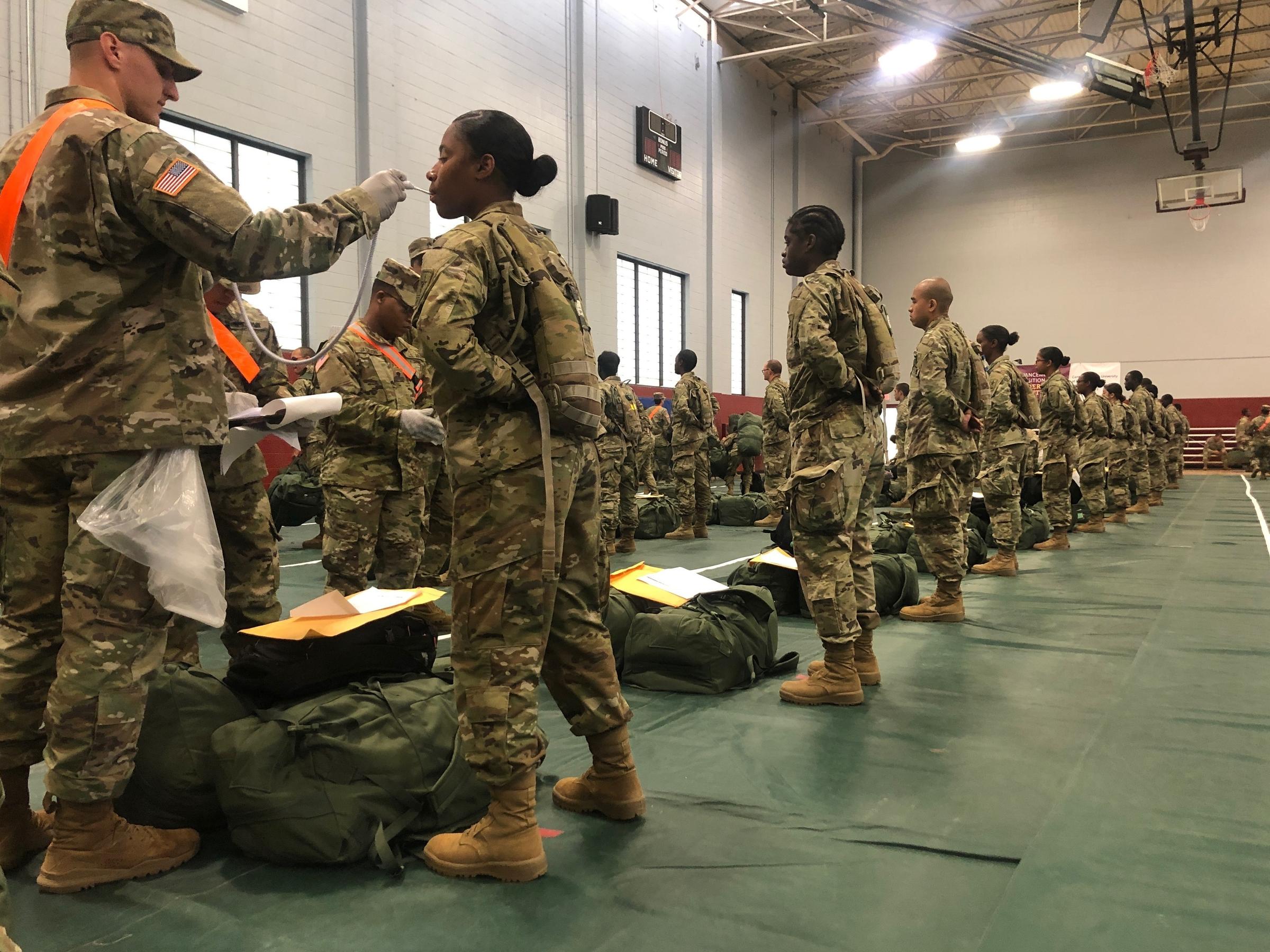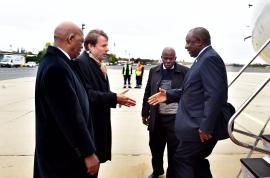TOKYO, Jan 8 (NNN-NHK) – Japanese Prime Minister, Fumio Kishida, confirmed yesterday that, three Japanese prefectures with surging cases of COVID-19, related to virus outbreaks at U.S. bases, would be placed under a quasi-state of emergency.
The entire southernmost prefecture of Okinawa, host to the vast majority of U.S. bases in Japan, will be put under a quasi-state of emergency, following a new record of 1,414 new daily cases.
The two other prefectures subject to stricter antiviral measures, Yamaguchi and Hiroshima, meanwhile, will see the mandate only applied to certain towns and cities, with stricter measures coming into effect for all three affected prefectures from tomorrow to Jan 31.
The decision to go ahead with the emergency measures in the three prefectures, followed the move being approved by an advisory panel of experts earlier yesterday.
The minister in charge of Japan’s coronavirus measures, Daishiro Yamagiwa, told the expert panel that, the rampant nature of the latest COVID-19 spread, if left unchecked, will put great pressure on medical facilities.
He stressed, there was a need for the government to proactively tackle the situation and contain the spread of the virus, particularly the highly transmissible Omicron variant of the virus.
Under the quasi-state of emergency, the first since Kishida took office in Oct, as the nation’s leader, prefectural officials will be empowered to enhance antiviral measures further.
These include asking eateries to close early and bars and restaurants to refrain from serving alcoholic beverages. Caps on the number of people attending large-scale public events can also be imposed by the local governments, under the quasi-state of emergency.
Japanese Foreign Minister, Yoshimasa Hayashi, requested that U.S. bases in Japan impose a curfew, amid the rampant spread of COVID-19 cases among American military personnel.
According to the foreign ministry, Hayashi’s request was made by telephone to U.S. Secretary of State, Antony Blinken, with Hayashi reportedly telling Blinken that further measures need to be taken by the U.S. side, to prevent the virus from spreading further at U.S. military facilities in Japan and into regular society.
The United States’ lax approach to administering its military personnel with COVID-19 tests before and after arriving in Japan, led to a spike in cases and cluster infections at multiple U.S. military bases.
Earlier this week, 182 personnel were confirmed to be infected at the Marine Corps Air Station Iwakuni, a U.S. Marine Corps air station, located in Yamaguchi Prefecture, south of Hiroshima.
The mayor of Iwakuni said, the cluster outbreak at the base was “fueling the rapid spread” of the Omicron variant in his city.
“We heard that the genome of the coronavirus from the base workers and those who tested positive at restaurants in the city is the same. It’s highly likely that the Omicron variant has spread from the base throughout the city,” Iwakuni Mayor, Yoshihiko Fukuda, said.
Last month, what has been described as a “major cluster of infections” broke out at the U.S. Marine Corps’ Camp Hansen in Okinawa, as was widely reported at the time, sparking initial concerns about the virus’ potential rapid spread from the base into mainstream Japanese society.
Other U.S. bases in Japan are also seeing significant COVID-19 cluster outbreaks and have likely been affected by new U.S. military personnel arriving in Japan not being required to undergo coronavirus testing until five or more days after entering Japan, according to the U.S. forces and as quoted by Japan’s public broadcaster.
“The U.S. forces then revealed it did not require new personnel to be tested until at least five days after arriving in Japan,” it was reported.– NNN-NHK




